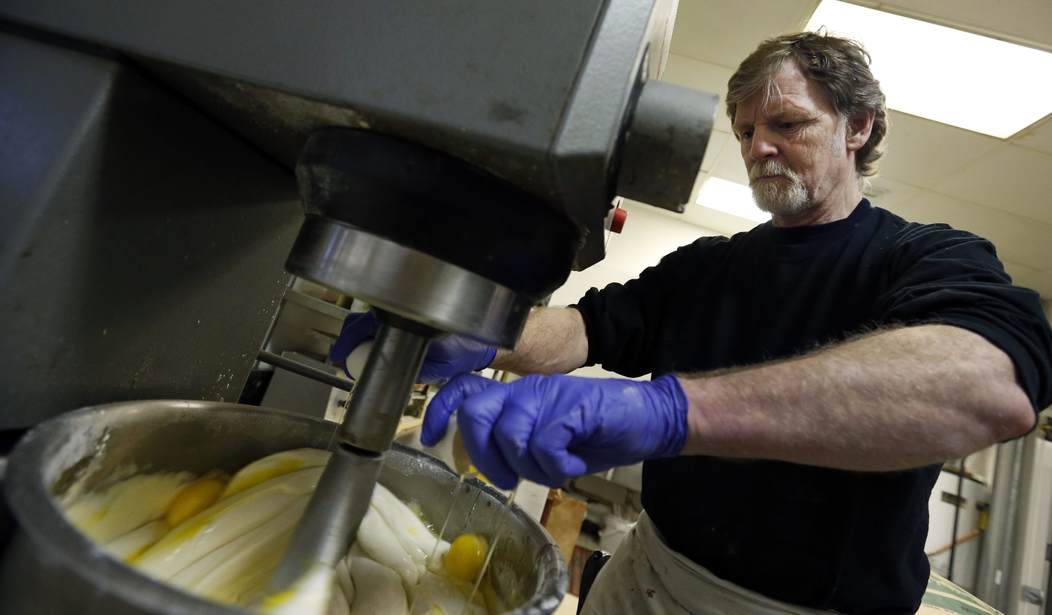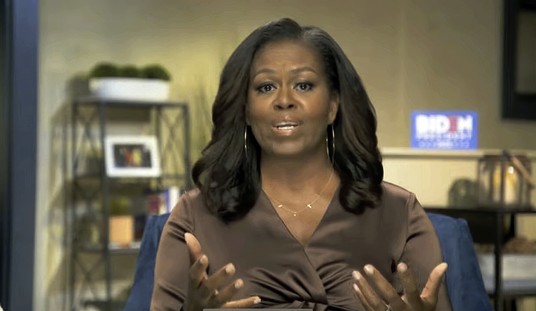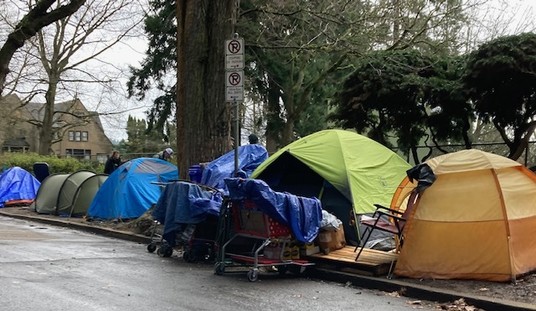On Tuesday, the United States Supreme Court will hear arguments in Masterpiece Cakeshop v. Colorado Civil Rights Commission, which centers on the actions of baker Jack Phillips, who refused to bake a cake to celebrate a same-sex wedding. The commission claimed that this was discrimination, but Phillips argued he should have the free speech right to refuse giving artistic expression in support of same-sex marriage.
“We’ve never given the government the ability to force artists to create artistic expression that goes against what they believe,” Jeremy Tedesco, senior counsel at Alliance Defending Freedom (ADF), the organization supporting Phillips, told PJ Media in an interview Monday.
Tedesco explained that Masterpiece Cakeshop is a free speech and religious liberty case. He shot down the claims of the commission and the American Civil Liberty Union (ACLU) that Jack Phillips discriminated against Charles Craig and David Mullins on the basis of their sexual orientation.
“Jack serves all people, he just doesn’t serve all messages or events,” the ADF lawyer explained. “When Jack declined the opportunity to create this cake, he said, ‘I’ll sell anything else in my shop, I’ll do other custom created pieces for you, but I can’t do this because promoting the idea of same-sex marriage through my art is against my religious convictions.'”
Tedesco argued that if the Colorado Civil Rights Commission can force Jack Phillips to bake a cake, government could then force people to express ideas they disagree with. “Do we want Democratic speechwriters having to write speeches for Donald Trump or atheist artists having to paint ‘God exists’ on church murals?” he asked.
“We live in a pluralist society with differing viewpoints about things that really matter, like ‘What is marriage?’ Is one side of a particular debate going to be able to use government to silence their opponents?” the lawyer said.
“This case is about whether the government has the power to coerce an artist to create expression they don’t want to create,” Tedesco explained. “Coercing artistic expression is so contrary to the First Amendment that I think the Supreme Court should rule in our favor.”
The ACLU and the commission have argued that if the Supreme Court defends Phillips’ right to refuse to bake the cake, that would carve out an exemption in civil rights laws. The ADF lawyer countered that the ACLU and the commission are the real ones calling for an exemption in the law.
“The State of Colorado and the ACLU want to carve out an exemption from the First Amendment on free expression,” Tedesco declared. “They are saying the government has this power to coerce artists to create art they don’t want to create.”
The ACLU vehemently disagreed with this interpretation of the case. The ACLU did not respond to PJ Media’s request for comment, but they did forward a Los Angeles Times op-ed from Deputy Legal Director Louise Melling.
Melling argued that Phillips discriminated against Charles Craig and David Mullins. “The two weren’t turned away because they couldn’t afford the cake. They weren’t turned away because they were rude. They were turned away because they are gay.”
Melling did not address the argument that Phillips did not “turn away” the couple at all — he merely refused to bake a certain type of cake for them, and immediately offered to bake another kind of cake. If Tedesco’s version of events is true, it becomes very hard to argue a case of discrimination, much less that Phillips “turned them away.”
Melling presented a few cases she claimed were similar to Masterpiece Cakeshop. She cited Newman v. Piggie Park Enterprises (1968), in which the Supreme Court ruled a barbecue chain could not refuse to serve black patrons, regardless of religious belief. She cited the 1983 case Bob Jones University v. United States, in which the Court ruled that schools did not have the right to deny admission to students who engaged in or advocated for interracial dating.
“The courts rejected all of those arguments,” Melling wrote. “They understood that religious liberty does not translate into a right to discriminate. If the Supreme Court now accepts the cake shop’s religion argument, the decision would have far-reaching consequences. Religious liberty could become a way out of anti-discrimination law.”
She dismissed the free speech argument on similar grounds. “According to [Phillips’] argument, the 1st Amendment protects its discriminatory conduct because the product it sells is artistic and expressive. Any business engaged in artistic expression can refuse service, they say, not just those motivated by religious beliefs.”
Melling refused to acknowledge the fundamental difference between Newman and Bob Jones on the one hand and Masterpiece Cakeshop on the other. The previous cases involved a blanket denial of service, but the current case only involves the refusal to provide one specific service — a service Phillips would deny to anyone.
If a straight person asked him to bake a cake for a same-sex wedding, he would refuse. If a bisexual person asked him for it, he would refuse them as well. But he would gladly bake any other kind of cake for all of these people, and does not turn anyone away from his shop. This isn’t discrimination, it’s a refusal to put a specific kind of item on the menu.
Carrie Severino, chief counsel at the Judicial Crisis Network, a firm that filed an amicus brief in support of Phillips, attacked the ACLU for selling out its own free speech principles in this case.
“The ACLU has really strayed from its founding principles,” Severino told PJ Media. “It used to be the preeminent free speech organization, but what we’ve seen in this case and others is that when free speech butts up against other liberal interests, then free speech gets the short end of the stick.”
She admitted that the ACLU defended the unpopular expression of neo-Nazis in the Charlottesville protest case, but suggested that the ACLU fears neo-Nazis less than it fears conservative Christians.
“It’s safer to defend the right of free speech for a neo-Nazi group because it does not have a serious cultural presence,” Severino argued. “They feel much more threatened by Jack Phillips because there’s a lot more people in America who share his Christian beliefs about marriage.”
Severino, a former law clerk to U.S. Supreme Court Justice Clarence Thomas and a graduate of Harvard Law School, suggested that it is too early to tell whether or not Jack Phillips will win the case — and even whether or not this will end up a 5-4 decision on the Supreme Court. She noted that the previous religious freedom cases, Trinity Lutheran Church of Columbia v. Comer (2016) and Hosanna-Tabor Evangelical Lutheran Church and School v. EEOC (2012), proved far less controversial than expected, with 7-2 and 9-0 decisions, respectively.
She also mentioned similar forced speech cases before the Supreme Court.
In Janus v. American Federation of State, County and Municipal Employees (AFSCME), Mark Janus, a state government worker represented by AFSCME, sued the union, claiming that he should not be forced to pay fees to support its work because he disagrees with its political positions.
In National Institute of Family and Life Advocates (NIFLA) v. Becerra, NIFLA argued that a California law requiring pro-life pregnancy resource centers (PRCs) to post information on how to get an abortion in their clinics is an unconstitutional violation of free speech.
Masterpiece Cakeshop, Janus, and NIFLA all involve cases of government coercing individuals or organizations to support speech with which they disagree, Severino argued.
Tedesco, the ADF lawyer representing Phillips, agreed with this assessment. “What I think we see is powerful left-leaning organizations in our culture doing this on a wide array of issues,” he said. “This is a broad societal problem.”
The ADF lawyer also cited a key passage in Obergefell v. Hodges (2015), the case which legalized same-sex marriage. “Many who deem same-sex marriage to be wrong reach that conclusion based on decent and honorable religious or philosophical premises, and neither they nor their beliefs are disparaged here,” Justice Anthony Kennedy wrote for the majority opinion.
Kennedy added, “Finally, it must be emphasized that religions, and those who adhere to religious doctrines, may continue to advocate with utmost, sincere conviction that, by divine precepts, same-sex marriage should not be condoned. The First Amendment ensures that religious organizations and persons are given proper protection as they seek to teach the principles that are so fulfilling and so central to their lives and faiths.”
Kennedy also called for supporters of same-sex marriage to “engage those who disagree with their view in an open and searching debate.”
“Those things were said in Obergefell and now the test is, what do those words mean?” Tedesco asked. “Do people like Jack Phillips remain free to create art in accordance with their religious beliefs?”
“You can’t have a searching debate about an issue if one side can use government to silence those with whom they disagree,” the ADF lawyer concluded.









Join the conversation as a VIP Member